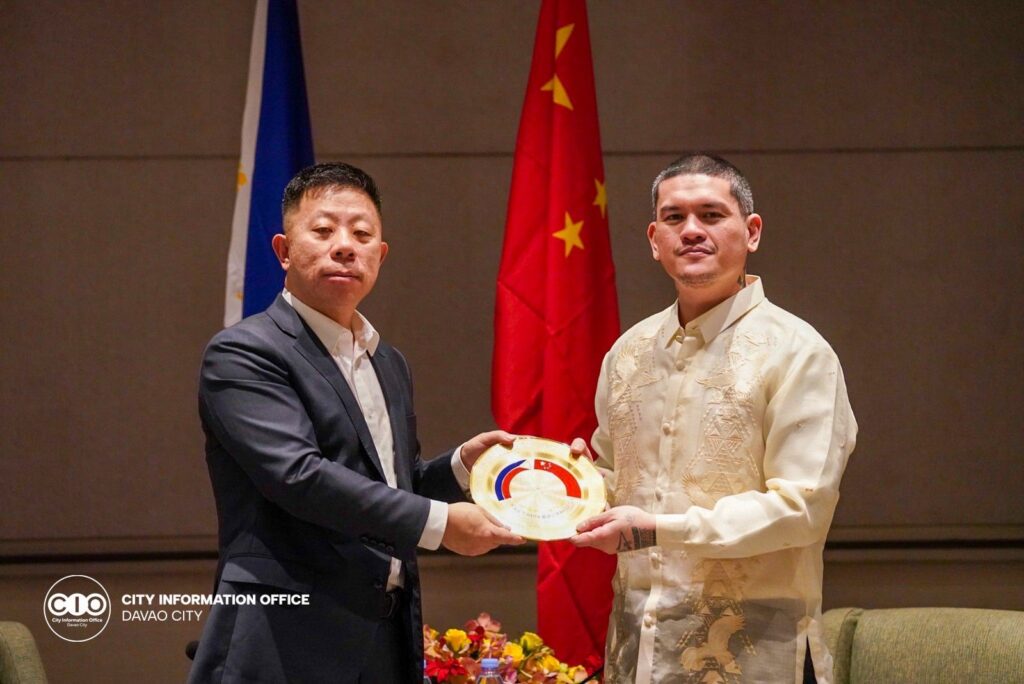A piece by Ed Davey of the Associated Press (AP) on Batangas Gov. Hermilando Mandanas should prick the interest of President Ferdinand R. Marcos Jr. and Executive Secretary Lucas Bersamin since they are promoting the theory that under their Bagong Pilipinas, corruption has no place in the bureaucracy.
In his June 21, 2024 investigative piece, Davey said that despite the fact that natural gas is a polluter, the Philippines, particularly Batangas, “is engaged in a major buildout of natural gas power at a time when scientists say the world needs to urgently phase out fossil fuel use because of climate change.” Davey said the power demand could be met by clean renewables while depending on natural gas means Filipinos would pay more for electricity now and in the future.
He described Mandanas as a “major cheerleader for natural gas” and he and his company “stood to benefit from the buildout.” Davey interviewed Mandanas, who is raring to help the Philippines become a liquified natural gas (LNG) hub for the Asia-Pacific region, with Batangas as the principal player. Four LNG plants are already operating along the coast and four more are planned. Six new terminals for the imported chilled and liquified gas are being built or are already operating. Mandanas told Davey that electricity is badly needed for national development.
Mandanas used to work for the Ministry of Human Settlements (MHS) during the Marcos martial law dictatorship, and said he was recruited by a college chum, the late Betty Bantug Benitez, wife of Jolly Benitez, to work for the ministry. He married Regina Ongsiako Reyes, daughter of former immigration chief Osmundo Reyes and former Marinduque Gov. Carmencita Ongsiako Reyes, both of whom are close to the Marcos family.
It didn’t take long for Mandanas to use his business acumen as an investment banker to buy middling corporations, purchasing Piedra Negra Mining Corp., incorporated on April 30, 1981, in the same decade and changing its name to Abacus Consolidated Resources and Holdings, Inc. (AbaCore Capital Holdings or ABA) and later changed its primary purpose from a mining firm to that of a holding company. The Securities and Exchange Commission (SEC) approved the change in corporate name on Oct. 18, 2013. ABA has controlling interest in companies engaged in financial services, real estate, gold mining, and coal mining.
ABA has a 4.89% stake in Pacific Online Systems Corp. (POSC), a firm that has an exclusive right to lease online lottery equipment for the lotto operations of the Philippine Charity Sweepstakes Office (PCSO) in Visayas and Mindanao. This is the same company that figured in the e-lotto scandal at PCSO, with the Office of the Government Corporate Counsel (OGCC) disallowing its one-year e-lotto test run, with critics claiming that the POSC, a unit of Willy Ocier’s Belle Corp., secured a 14% commission from the POSC to which the company was not entitled. A graft and plunder complaint has been filed against PCSO general manager Melquiades Robles and POSC officers before the Office of the Ombudsman for the P4-billion contract.
What has gotten the hackles of lawyers and environmental advocates is the fact that Mandanas cut a deal in 2019 that involved an AbaCore sister company in which Mandanas holds a large stake. The AbaCore affiliate and three Chinese firms agreed to build a $3-billion LNG complex in the fishing village of Simlong, Davey reported. Four properties owned by the group, including the land where the power hub will be located, were valued at $6.2 million before the deal. Now, the value has zoomed five times. This is a clear case of self-dealing, critics insist. Davey said it was probable that one of AbaCore’s subsidiaries sold a piece of property and argued that AbaCore “is not in any energy business here in Batangas.”
Legal experts warned the deals violate Philippine law on ethics in public office and possibly the nation’s law on local government. Politicians are not allowed to own major stakes in companies which deal with government, secure infrastructure, mining and energy development contracts. Graft obtains when officials steal government funds while corruption ensues when officials receive bribes to fatten their wallets. Those who profit from graft and corruption are called bureaucrat capitalists. Michael Henry Yusingco, a lawyer and fellow at the Philippine Institute for Autonomy and Governance (PIAG), told AP the situation a clear conflict of interest that could merit Mandanas’s suspension or removal from office. Elizabeth David-Barrett, director of the Center for the Study of Corruption at University of Sussex, England, reviewed the AP’s findings and agreed with Yusingco that they amount to a conflict of interest and the “abuse of entrusted power for private gain which harms the public interest.” Barnaby Pace, at the nonprofit Center for International Environmental Law, said LNG projects should be reviewed due to the information culled by Davey.




